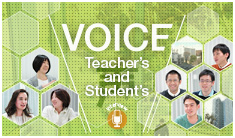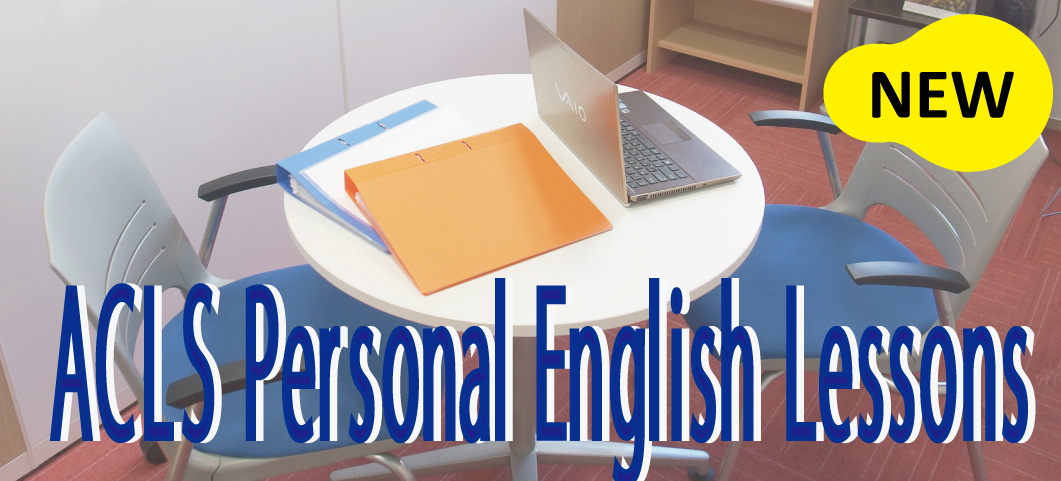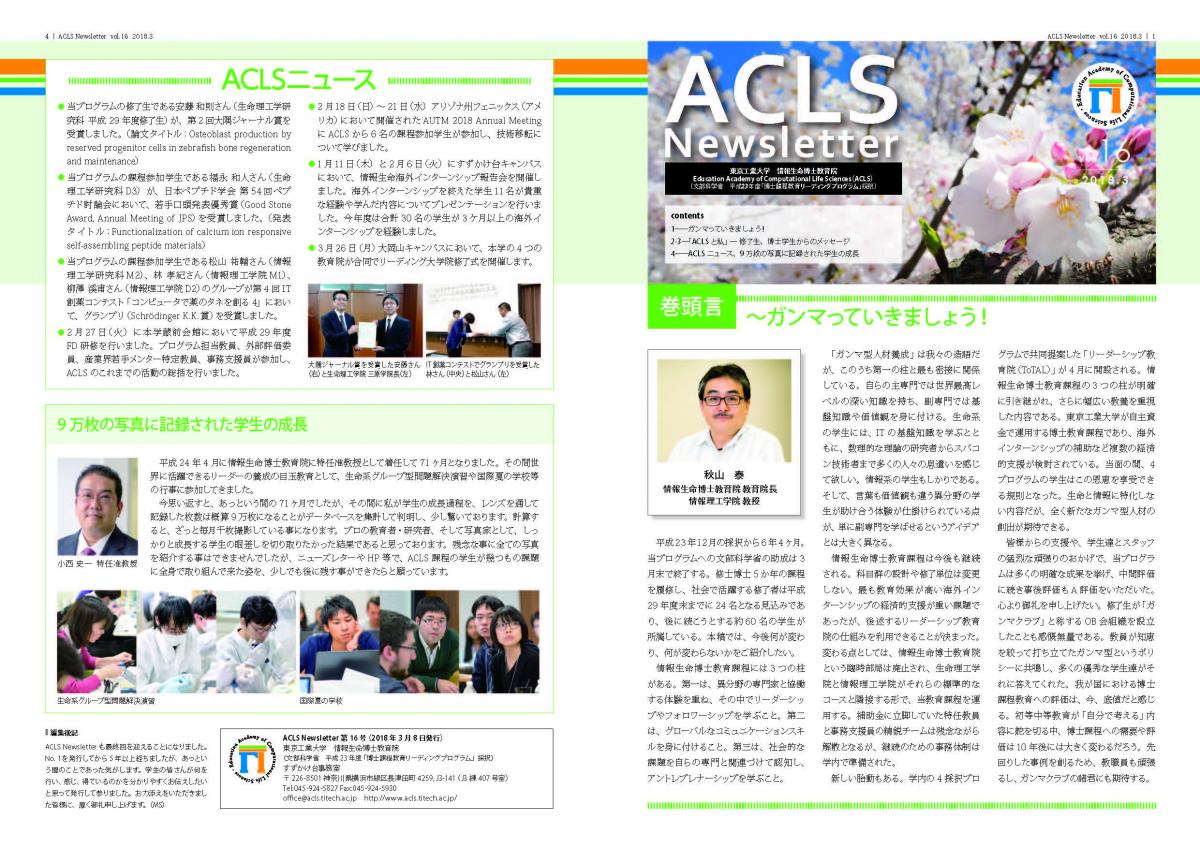- Home
- Teacher's and Student's voice
- Shinae Kondoh
Shinae Kondoh


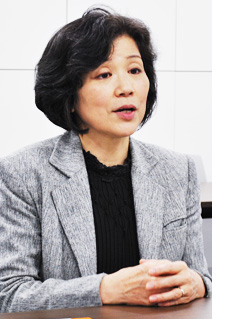 Kondoh: Up until 2008, I was involved with medical-engineering collaboration at the graduate school of Kyoto University. That involved developing applications for engineering materials in clinical practice. At that time, I realized the importance of understanding other fields in order to be able to communicate clearly "what I have done", and "what I need". Everybody had outstanding track records in their own field, but there was nobody who could bridge the gap between them. They couldn't communicate. So I felt that it was important to foster talented individuals, who would of course have specialist expertise in their own fields already, in order to develop the communication abilities to build connections between a wide range of fields.
Kondoh: Up until 2008, I was involved with medical-engineering collaboration at the graduate school of Kyoto University. That involved developing applications for engineering materials in clinical practice. At that time, I realized the importance of understanding other fields in order to be able to communicate clearly "what I have done", and "what I need". Everybody had outstanding track records in their own field, but there was nobody who could bridge the gap between them. They couldn't communicate. So I felt that it was important to foster talented individuals, who would of course have specialist expertise in their own fields already, in order to develop the communication abilities to build connections between a wide range of fields.
I heard about the "Program for Leading Graduate Schools" back when it was still in the planning stages. There were a lot of areas in the life sciences and information sciences where different fields overlapped. However, there was no concrete format for how to bring both sides productively. I felt that ACLS was a project that would be capable of providing the solution. It was about developing people who had a thorough grounding in their own specialist field, as well as an understanding of other fields as well, and seeing what kind of things they could come up with, and how that would benefit society. I decided that I wanted to contribute to that.
On top of that, the fact that I would be in charge of the global communication section - which is an area that I think is very important - was also a large part of why I got involved. I came up with a plan based on "classes I would have liked to have taken when I was a student" that I had developed through interacting with foreign students and other visitors from overseas. So in that way, I felt that I was putting my own career and life experiences to good use.

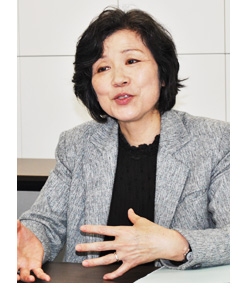 Kondoh: When you talk about "Gamma Type Specialists," I have the image that "Intercultural Communication" is the horizontal stroke in the Gamma Symbol (Γ). I think of it as the task of building connections between the specialist field and the other fields. In terms of my own research, I think that it is definitely necessary to develop the ability to appeal to other people. Unfortunately, I think the ability of Japanese people to appeal to others is relatively low compared to people from other countries. I think that is because we can be too straightforwardly honest for our own good, and so we just say "I don't know" when we really don't know something. However, we have to develop the ability, comparable to people overseas, to attract other people and get them interested in the things we ourselves are working on. We have to engage in a little self-publicity. We need to have the capacity to express ourselves that is similar to the people we are talking to, in order to get them to agree with what we are saying. And that ability becomes important when it comes time to leave the safety of academia and go out into the wider world. So we are creating an opportunity to instill that ability in these students now.
Kondoh: When you talk about "Gamma Type Specialists," I have the image that "Intercultural Communication" is the horizontal stroke in the Gamma Symbol (Γ). I think of it as the task of building connections between the specialist field and the other fields. In terms of my own research, I think that it is definitely necessary to develop the ability to appeal to other people. Unfortunately, I think the ability of Japanese people to appeal to others is relatively low compared to people from other countries. I think that is because we can be too straightforwardly honest for our own good, and so we just say "I don't know" when we really don't know something. However, we have to develop the ability, comparable to people overseas, to attract other people and get them interested in the things we ourselves are working on. We have to engage in a little self-publicity. We need to have the capacity to express ourselves that is similar to the people we are talking to, in order to get them to agree with what we are saying. And that ability becomes important when it comes time to leave the safety of academia and go out into the wider world. So we are creating an opportunity to instill that ability in these students now.
Speaking from my own experience, there is a firm limit to how much expertise at intercultural communication you can gain just from studying by yourself. The level of ability you get from reading textbooks and listening to lectures is different to what you get from going out into the real world and engaging in communication and taking part in debates. You can't achieve communication by just remaining passive or only moving at your own pace. It is important to learn through practical experiences not only how to express yourself, but also how to put together an argument and engage in discussion. The Intercultural Communication program at ACLS allows students to learn these things.

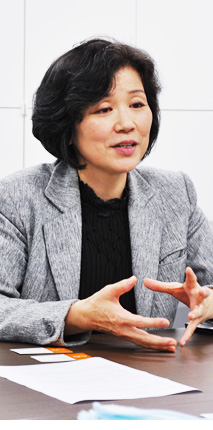
Kondoh: They get practical experience of the methods and ways of thinking about intercultural communication through the four subjects of Communication, Debating, Writing, and Presentations. In each subject, we have designed the curriculum to stimulate students’ desire to learn, so that even someone who is not very outgoing can join in the program and make progress. I wanted to create the sort of thing that would make me think, "I really wish this class had been around when I was a student".
The instructors are sent to us from the language school Berlitz. We have assembled a collection of really passionate and motivated people. They are always thinking about how they can draw out the abilities that the students already possess inside themselves, and what approach they should use in order to get them to respond.
In "Communication" we are not concerned about the accuracy of the students’ grammar, but in teaching them how to create a space where they can have a conversation with the other person: what kind of words you have to use to get the other person's attention focused on you: which words you have to throw in, with what timing, in order to draw information out of the person you are talking to. The program is set up to give students exactly these kinds of practical opportunities.
We have incorporated this approach into the textbooks too. In an ordinary language school, you study the kind of everyday conversations you would have on an overseas trip, or if you were living abroad. But what we require is something different. Our focus is on science-based communication, such as how to conduct a discussion at academic seminars and debates, and how to exchange information at a reception, and so on. And so we use textbooks that let the students study methods of communication that are appropriate to situations in which they can envisage themselves needing to communicate.
When it actually comes time to hold the lessons, for the first few classes, the majority of students hardly open their mouths at all. But the quick ones are already starting to think from about the third lesson onward, "Ah, if I say something they can understand me!" and then little by little they become more active. Looking at the surveys and so on, a lot of the student replies say something like "After attending the class several times, I started to feel my communication ability was really improving". Everybody has a basic foundation of ability to build on as a result of their school education, they just don't know how to produce it. So in "Communication" we use various different approaches in order to bring out the passive knowledge that is inside everyone.

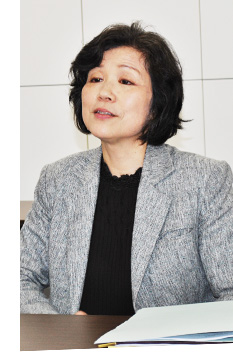 Kondoh: "Debating" is a subject where students gain the ability to state their own opinion, argue their case, and get their point of view across to another person. In the classes we divide the students up into groups "for" and "against" some theme. Then they think about how to get the other side to agree with their opinions, and improve their ability to express themselves by taking part in a debate as a group. This is a subject where proper preparation is essential for getting the most out of it, in terms of improving students' communication abilities, and one where the students' results reflect the effort that they put into it.
Kondoh: "Debating" is a subject where students gain the ability to state their own opinion, argue their case, and get their point of view across to another person. In the classes we divide the students up into groups "for" and "against" some theme. Then they think about how to get the other side to agree with their opinions, and improve their ability to express themselves by taking part in a debate as a group. This is a subject where proper preparation is essential for getting the most out of it, in terms of improving students' communication abilities, and one where the students' results reflect the effort that they put into it.
Equally important as communication though conversation is the ability to convey information in writing. In order to pass information on to future generations, it is important to put down information in writing. In "Writing," students study methods of intercultural communication that use writing. In concrete terms, they learn how to write e-mails and academic essays. In terms of the latter, we start from how to structure an essay, and proceed onward in stages, developing the students' ability to write an essay that transmits their own ideas.
The final course on "Presentations" is to develop the ability to transmit the students’ thoughts neatly to a large number of people. They study things such as how to use gestures during the presentation, and what to be careful of when speaking. We train them to be able to speak with confidence in front of a large number of people.
All of the above courses have been highly rated, with people saying that any one of them would be sufficient on its own to satisfy the ACLS program's goal of providing "Training for Gamma Type Specialists". In the future I would like to develop the program further in the direction of rewarding the amount of effort that students put into their study.

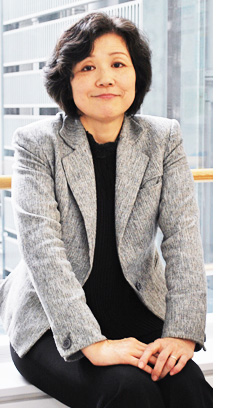 Kondoh: This year (2013) the contest was held on August 7 at Suzukakedai Campus. In a questionnaire for students taking the intercultural communication course, there were a lot of responses that from students who felt that "my own communication ability has improved". By providing them with a place to give a presentation, we hoped to link that confidence up to the next step in the process, and so we provided the students with an opportunity to show how well they could present a report on their research results.
Kondoh: This year (2013) the contest was held on August 7 at Suzukakedai Campus. In a questionnaire for students taking the intercultural communication course, there were a lot of responses that from students who felt that "my own communication ability has improved". By providing them with a place to give a presentation, we hoped to link that confidence up to the next step in the process, and so we provided the students with an opportunity to show how well they could present a report on their research results.
It was the first time that we had ever held this event, so we were a bit worried about whether we would even get enough participants, let alone an audience especially because participants do not get any reward in terms of credits. However, when we sent out the details, we got entries from 10 students. On the day they each had 10 minutes to speak, and it was an extremely tight schedule, with no break between speakers. There was an audience of more than 70 people. Thinking back to how the announcement of the competition was delayed, and also how the date on which it was held was right after summer vacation started, I think it is safe to assume that many of the participants and audience alike thought they "would get something out of taking part".
The presentations on the day were, in a good sense, far better than anything we expected. All 10 participants provided presentations of such consistently high quality that it was virtually impossible to separate them. The students who took part in the presentation course demonstrated how thoroughly they had absorbed the lessons of the course and how well they could appeal to other people. The slides that the presenters used were also well made and showed carefully thought out composition.
We considered the event a great success, including the party afterwards which was a valuable for people to get to know one another. We aim to hold the event again next year and in subsequent years, and we hope that the number of people coming to take part every year will increase.
(Note)The contents of the interview are accurate as of the time of interview in October 2013.





